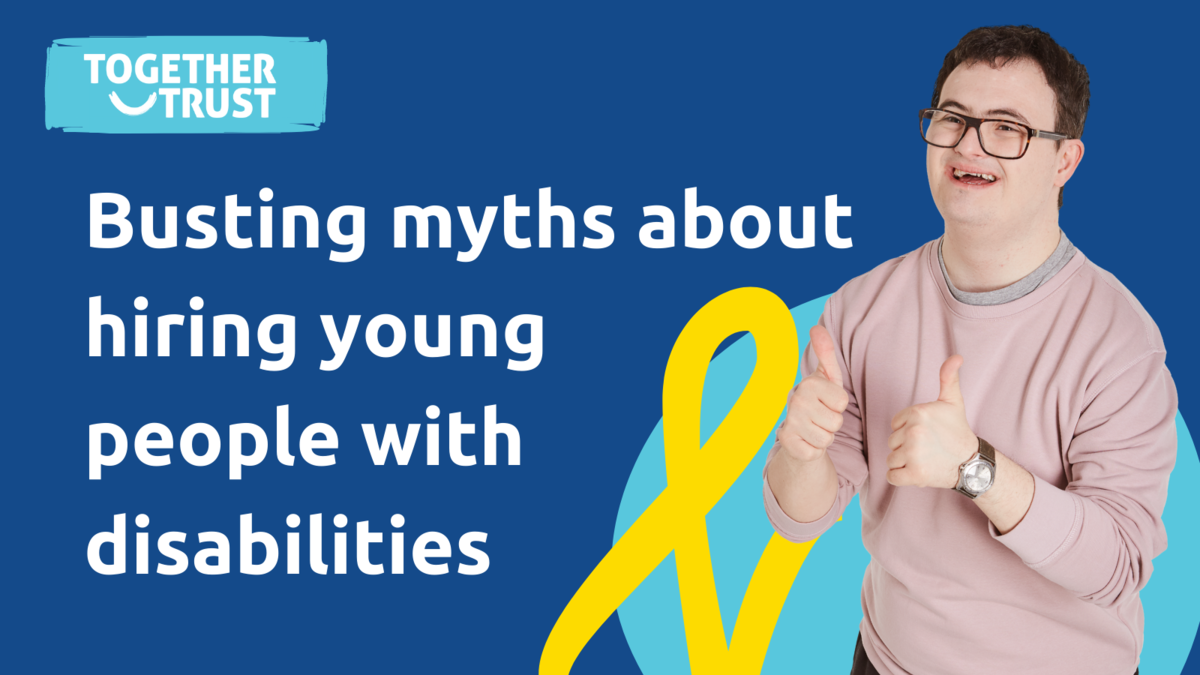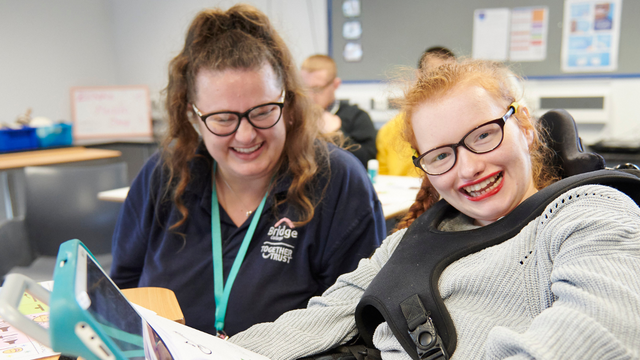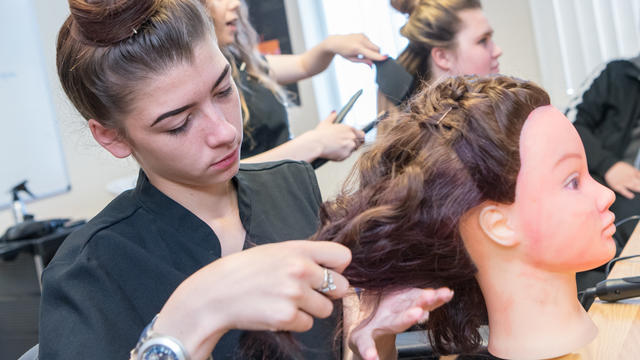Facts and myths about the employment of people with disabilities

According to the Labour Force Survey, there were 4.4m disabled people in employment in the UK in Q2 2021. In addition, the disability employment rate was 52.7% in Q2 2021, compared to 81.0% for non-disabled people.
Although disability inclusion in the workforce becomes more prevalent, tackling stigma and unconscious bias is still a significant hurdle in bringing on disabled hires at the workplace.
We spoke to Chloe Parker, Job Coach, and Lorraine Ashworth, SEND Tutor, at our specialist college - Bridge College, about some of the potential barriers and their solutions regarding hiring, supported interns.
Myth: "Working with disabled interns might be more challenging due to their support needs."
Fact: In most cases, individuals with disabilities have adjusted to their disability, and this does not affect their ability to work unaided.
The job coach, support staff and work experience coordinator will always be available to assist the employer and staff in communicating effectively with the intern and providing strategies for managing and minimising challenging behaviours.
Myth: "It will take up a lot of time for the employer and staff."
Fact: There will be some input needed, but this will be set out at the start and something that will be kept under review. However, the job coach and Specialist Education provider will provide training after the initial induction and 1:1 support staff so that the employer/staff shouldn't find themselves over-burdened.
Myth: "Someone with a disability will not be able to do any of the jobs I offer."
Fact: This is something that the work experience coordinator would initially decide, but if there is a skill deficit/barrier to a young person gaining employment, it will become part of their flexible learning programme.
Myth: "People with disabilities may be less productive because of the individual's time training to perform the job role successfully."
Fact: The job coach and work experience coordinator will work with the employer to establish clear performance expectations from the start and ensure that the intern can pick up the tasks required of them to make sure that productivity is not affected.
Every day, our students develop their work skills and self-confidence. This might be through practising task-based routines and following instructions. Or by testing their new skills at our college print shop and café. We can also support students to develop on-the-job training through work placements with community-based partners.
Supported internships help our Bridge College students with an EHCP learn the skills they need to progress to paid employment. If you are interested in partnering with us to create a fully supported, hands-on training programme for our young people aged 16 to 25, read more here.







